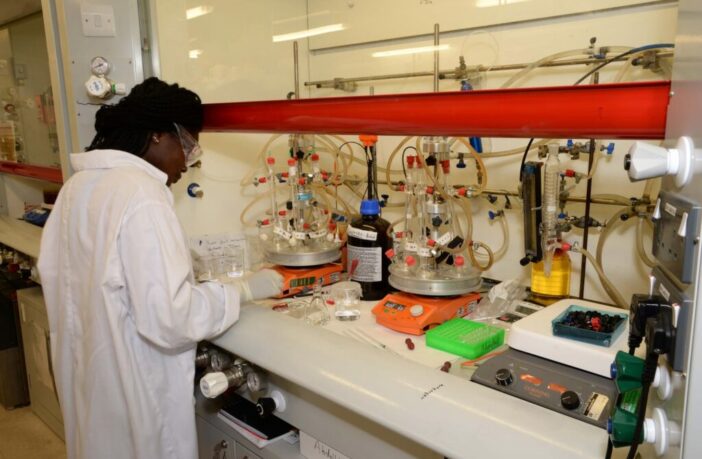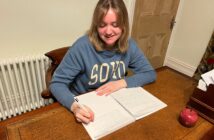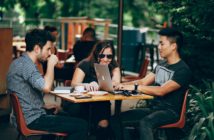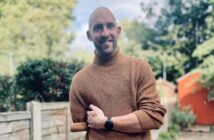When Lois Damptey left her home in Ghana to study for a PhD with The Open University, she had one clear goal: for her research to help save lives.
Now in the final year of her doctorate, Lois, 30, is exploring how solar energy can be used to create a low-cost water filtration system. The result could provide critical access to clean drinking water for communities around the world.
“I’ve always been somebody that wanted to do something that impacts lives,” says Lois, whose PhD is funded by the Global Challenges Research Fund.
“A lot of my research has caused me to move between several countries to help create partnerships that will impact my home country in the long run.”
Finding a sustainable solution
Growing up, Lois witnessed first-hand how vital accessibility to clean water is.
Though current methods of water purification aim to make water safe to drink, dangerous inorganic compounds and bacteria can often remain, invisible to the human eye.
“Across the globe, there is high diarrhoea and cholera cases that are caused due to water pollution,” Lois explains. “Statistics show that every minute, 5% of children who are future leaders die because of these water-borne diseases.”
Research that can change lives
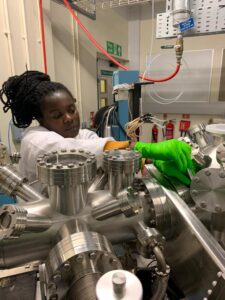
Lois in the OU lab
In the lab, Lois is experimenting with a scientific technique called ‘photocatalysis’. This uses the power of the sun to kick-start a chemical reaction that removes as high a percentage of organic impurities from water as possible, in the shortest amount of time.
“We are looking at a phenomenon where we would go away from using electricity and being able to use the natural sunlight that is readily available to us. And in Africa, it’s sunlight all day long,” she said.
“So if we’re able to tap this resource, then we will be using what is readily available to create something essential for life.”
Life as an OU researcher
Lois spends most of her time in the lab at The Open University’s Milton Keynes campus, working alongside a team of fellow scientists.
After moving across the world to continue her research, Lois says she was delighted to discover the University’s supportive research community.
“There is access to these world-class facilities all around us and everybody is ready to help,” she says.
“You have the facilities, you have the equipment, you have the professionals, and you have meetings, people checking in on you. We even have walks in the OU campus grounds just to discuss our research.
“I absolutely always recommend the OU. If you’re thinking of studying with the OU, you’re making the best decision. I would just say to try to maximise every opportunity that comes your way.”
Looking to the future, Lois hopes her ongoing research will lead to a low-cost, sustainable purification system that could be scaled up to improve the health of communities in Ghana, across Africa and communities across the globe.
It’s this passion for making a difference to others, especially the next generation, that led Lois to found two non-profit organisations. Sankofa Mentorship Hub and Dear Young Graduate support rural schools with practical STEM education and encourage young people to discover their own love of science and engineering.
Lois’ ongoing work recently earned her a prestigious Youth Excellence award in Science and Engineering’.
